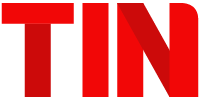Established in 2005, Fingermark has spent 16 years developing and commercialising leading edge data-driven, digital technology solutions to address the problems that really matter to their customers and their customers’ teams.
Fingermark has built strategic partnerships with global leaders in two of the world’s biggest industries, Quick Service Restaurants (QSR) and Mining. With a focus on customer experience and human engagement technology, it has developed unparalleled expertise in machine vision, data visualisation and intelligent business logic.
 The Fingermark team uses machine vision and AI in groundbreaking ways to help the biggest mining companies in the world address the second highest cause of death and lost time injuries in their industry - accidents in the tire bay - where massive machinery interacts with humans, and danger zones change by the second.
The Fingermark team uses machine vision and AI in groundbreaking ways to help the biggest mining companies in the world address the second highest cause of death and lost time injuries in their industry - accidents in the tire bay - where massive machinery interacts with humans, and danger zones change by the second.
In the QSR industry it is applying its machine vision expertise to the drive-thru, where over 75% of orders are placed, to provide global brands with highly accurate data and real time insights that empower employees to unlock huge gains in operational efficiency and enhance customers’ experience. Together with Fingermark’s advanced kiosks, intelligent menu boards and other products the company is creating a true ecosystem that leverages data and exceptional UX for its customers.
Fingermark appeared in the 2020 TIN Report for the first time. As an industry-leading provider of data-driven digital solutions for the hospitality, retail, and mining industries, we were not surprised that the company entered the TIN200 in 2021 at an impressive rank of 140.
We were curious to find out from CEO and Founder Luke Irving what’s next for Fingermark.
Fingermark has a truly impressive customer list in the QSR industry and works with some of the biggest mining companies in the world. In the 2020 TIN Report you (Luke) were quoted “success for us is continuing to develop our product suite to meet the needs of tomorrow’s customer, leveraging the relationships built in the QSR sectors and extending the application of our products into new sectors.”
Which sectors do you have in focus next for Fingermark to enter and why?

Luke Irving - Founder & CEO, Fingermark
Recruiting people with the skills, expertise and aptitude to grow with our business needs to be done at pace. Worldwide the shortage of talent; in particular the pool of developers and engineers is proving an ongoing challenge for the tech sector. Like many tech businesses, we are focused on not only developing a pipeline of talent, but providing opportunities for personal growth and development for existing team members.
Developing robust systems and processes that allow the business to grow and expand without stifling creativity and thinking.
Ensuring every opportunity explored aligns with the strategic direction of the business, and meets the agreed criteria.
What are your top three business priorities for this year?
1) Meeting customers face-to-face, now that the borders are open.
2) Growing our share of wallet with existing customers.
3) Focus on securing global brands in the QSR and mining sectors that align with our strategy.
How are you further enhancing your offer to your QSR customers? Will acquisitions be a recurring company strategy for Fingermark moving forward?
And how have business partnerships helped you expand globally?
With offices in Australia, Brazil, Dubai, and the US, what keeps Fingermark in New Zealand?
And how do you build a cohesive company culture across so many separate locations?
Finally, out of curiosity, where does the name Fingermark come from?
Click here to learn more about Fingermark.
Share this Post

